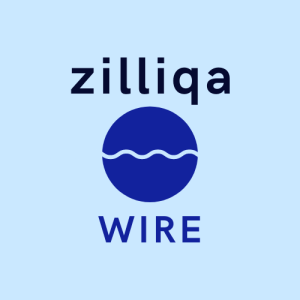The last week has seen the ZIL token price rally around 300% on the optimism surrounding the upcoming launch of Zilliqa’s Metaverse-as-a-Service offering Metapolis this weekend on 2 April 2022.
Part of the optimism stems from the first mover advantage owing to Zilliqa being the first layer 1 to launch an extended reality Metaverse-as-a-service, and the large number of strategic partnerships they have attracted in the process of building Metapolis. Zilliqa’s pioneering sharding technology will bring a very high speed to the platform relative to that of other blockchain offerings, and all of this (and more) combine to make this metaverse very attractive to businesses and users through the usability and utility it offers. Zilliqa has called out the high degree of customization possible in the platform, and what this means to users is people if they desire can build marketplaces to sell their products or services, a virtual museum or gallery to showcase all kinds of visual art, virtual venues to hold concerts and other community events, all the while being able to interact and engage with others in ways not previously possible.

Smart contract platform Zilliqa’s ZIL token has charted a threefold rally in six days to become one of the best performing cryptocurrency of the month.
The token has increased 300% to $0.186 from $0.045 on March 26 – with prices jumping nearly 20% in the past 24 hours, according to data source Messari. At press time, the cryptocurrency boasted a 321% gain for the month, the highest among digital assets with market values of at least $1 billion.
Social media chatter reveals optimism about Zilliqa’s Metapolis, a metaverse-as-a-Service (MaaS) platform, scheduled to launch with a VIP event on Saturday in Miami.
“We are just getting started,” Redditor BlockChayne said in a Reddit post early this week after taking stock of Zilliqa’s progress in 2021. “Leading the charge is the groundbreaking, game-changing Metapolis, which will allow Zilliqa to spread its meta-wings across a range of verticals and blockchains.”
Metaverse is a superset of virtual reality, augmented reality and the internet. It essentially tries to recreate the democratic real world in a digital space. According to a Markets and Markets report, the augmented reality market is estimated to grow to $77 billion by 2025 from $15.3 billion now at a 38.1% compound annual growth rate. The virtual reality market is projected to grow to $20.9 billion in 2025 from $6.1 billion.
Why is Zilliqa going up?
Metapolis, which is referred to as “metaverse for all,” is a service setup, offering a blank canvas for clients to build their own virtual universe as they desire.
While observers foresee Metaverse industry booming over the coming years, accessing the same is challenging for the general population, as building virtual infrastructure requires significant investment and technological expertise. Last year, Meta Platforms, formerly Facebook, lost $10 billion on its augmented and virtual reality operations. The loss was reportedly five times bigger than the amount Facebook paid to purchase Oculus VR in 2014 and 10 times bigger than what Facebook paid to acquire Instagram.
Metaverse-as-a-service providers like Metapolis provide required technology and infrastructure to enable users to create and maintain their own metaverses. The service providers essentially remove the high-cost entry barrier, opening doors for smaller players.
“Metapolis, whose suffix means ‘city’ in Greek, is designed as a cutting-edge extended reality (XR metaverse)– an amalgamation of AR and VR – and is powered by Zilliqa’s scalable and secure blockchain platform,” Aparna Narayanan, head of communications at Zilliqa, said in a blog post published in December.
“Metapolis will allow conceptually rich and custom-designed domes as part of cities that can house brands, artists, concepts, games, e-stores, real estate or other digital experiences – offering a new layer of engagement for both the physical and digital worlds. Metapolis looks to be self-sustaining and includes engagement layers such as NFTs, e-commerce, play-to-earn, digital mannequins, advertising billboards and more,” Narayanan added.
According to the press release dated March 25, Metapolis is built on “unreal engine” – an advanced real-time 3D creation tool for visuals and immersive experiences, which means the user experience is likely to rival those of top games.
Metapolis secured $2 million in pre-launch revenue from its client pipeline and recently announced a partnership with Agora,a global talent awards app.
“We are excited for this partnership as we are able to bring not only creativity to life within the metaverse but also open borderless access for creatives worldwide to connect in the digital world. The partnership between Agora, Zilliqa and Metapolis means we are at the forefront of Web 3 innovation,” Sandra Helou, head of metaverse and non-fungible tokens at Zilliqa, said in the presser.

